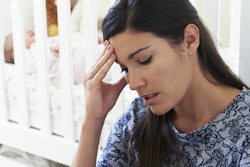Untreated tooth decay in mothers almost doubles the odds of tooth decay in their children, according to a University of California, San Francisco (UCSF) study that examined the oral health of rural Hispanic families (Journal of Dental Research, May 2010).
The population-based study included low-income Hispanic families working in agriculture in a small, rural community in California's Central Valley. The analysis included 179 mothers and their 387 children, and found that 46% of mothers and 27% of children had untreated tooth decay.
"These results translate into key messages for parents, dentists, and policymakers," said Jane Weintraub, D.D.S., M.P.H., director of UCSF's Center to Address Disparities in Children's Oral Health, in a press release. "The oral health of parents, especially moms, can impact the oral health of children, so dentists should include the whole family in the dental care process -- not just the individual in the chair -- to prevent future disease."
Although a specific population was analyzed in this study, its conclusions are likely to be valid for other demographic populations because bacteria that cause tooth decay can be transmitted from person-to-person, including mother-to-child, the authors said. Almost half of the mothers studied and more than a fourth of the children and adolescents in this population had untreated tooth decay.
"This can occur, for example, from a mother tasting a child's food and then using the same spoon to feed her child," Dr. Weintraub said.
The findings underscore the need for families to have access to dental care, especially those within underserved populations. Instead of cutting Medicaid dental benefits for low-income adults and excluding adult benefits from healthcare reform, the authors recommend that adults be included in dental programs and policies to improve the oral health of children and families.
For family dentists, the findings emphasize the importance of asking about the oral health of other family members. "Dentists should encourage all family members to get treatment, especially if a child already has tooth decay, and provide the family with the preventive measures, knowledge, and skills to help prevent future disease," Dr. Weintraub added.
Copyright © 2010 DrBicuspid.com



















